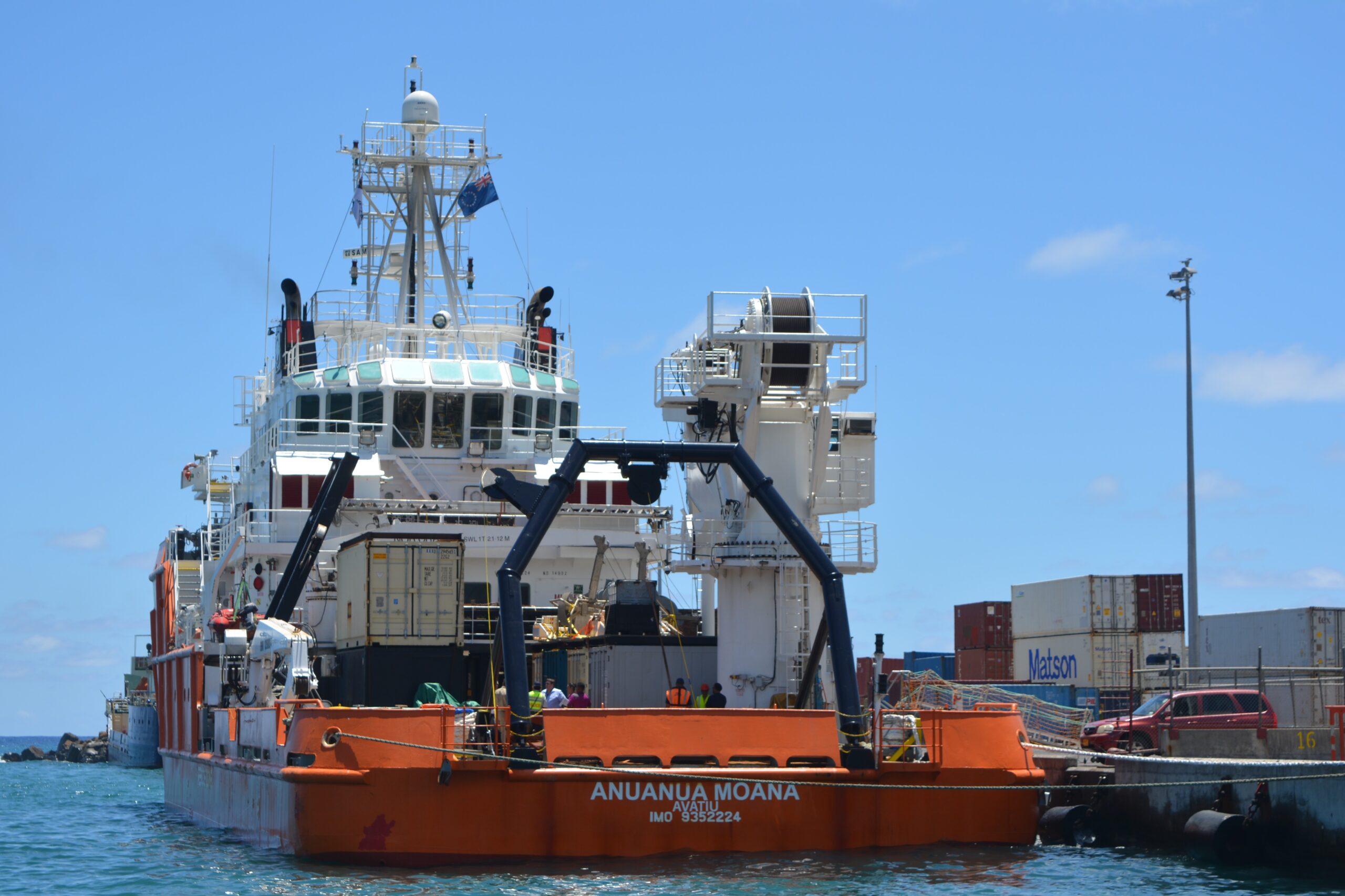Is the fate of our deep sea environment in the hands of the mining companies?
Saturday 18 March 2023 | Written by Te Ipukarea Society | Published in Environment, Local, National

For some, the issue of seabed mining is not yet on their radar. For others, it’s a topic that’s too technical to understand so their interest drifts elsewhere. There are those who have already been convinced mining is the way to go. Then there are others who don’t want mining to ever go ahead. The truth is we simply do not know enough to make that decision.
Over the years, there has been a significant push by the Cook Island government to share the narrative among our community that mining will bring significant financial benefits to our nation and that seabed mining will solve the world’s current climate crisis.
But what about the voice from our ocean?
What are the potential environmental impacts our ocean will face? Impacts that we should all be aware of to determine how much new risk we are willing to accept.
From the little research that has been done, we do know the environmental impacts of deep sea mining will be irreversible.
Deep seabed mining will harm a sensitive ecosystem that is very still, dark and cold, a fragile environment that is not typically disturbed.
To responsibly manage deep sea mining impacts, a significant amount of time and research will be needed to understand our deep sea’s resilience to disturbance.

For example, understanding how far the disturbed sediment (found at the very bottom) will travel beyond the mining area? Will settling sediment smother life found on our seafloor?
Current commercial mining designs involve vacuuming up the fine toxic sediment with the polymetallic nodules to a collector’s ships, with all sediment being dumped back into our ocean.
What will the impacts of this be on our fish stocks?
Tiny life has been discovered throughout our ocean’s water column, including bioluminescent organisms.
They need dark spaces to light up the dark as a way of communicating with one another.
But this won’t be possible with sediment plumes getting pumped back into our ocean making it murkier than usual.
Bioluminescent life may be little, but they definitely have a bigger purpose in our ocean, especially when considering the ocean’s food web.
There will be light pollution at these deep dark depths, which this ecosystem has never experienced before.
Noise pollution and vibrations will occur throughout the whole water column (top to bottom), potentially impacting migratory species such as whales.
There are cumulative and long term impacts to also consider and be aware of.
For example, current research has predicted our waters could become more acidic and warmer as a result of disturbing the seafloor which is storing large amounts of carbon, evidently adding to the impacts of climate change by releasing this stored carbon back into our ocean.
Yes, it is true, the polymetallic nodules (black rocks) we are wanting to mine have been found in vast quantities in Cook Islands waters, possibly more than anywhere else in the world.
But why is this the case? What are the unique environmental conditions supporting the formation of these rich nodule quantities? Do these conditions have the potential to support a higher abundance of species and multiple ecosystem functions? What is the purpose of these nodules? At a minimum, they are a home to species that rely only on the nodule as a place to live, much like we rely on a healthy planet earth for us to live on.
These are some questions that even after 20 plus years of studying in the central north Pacific, deep sea ecologists are only just starting to form a basic understanding of how the deep sea ecosystem functions.
Less than 1 per cent of the Cook Islands seabed has been studied.
We are only at the very beginning stages of researching our own deep sea now entering a five- year exploration phase for three companies through the Cook Islands Seabed Minerals Authority.
It is of concern if the only research we are going to rely on to manage seabed mining activities comes from the mining companies themselves.
What exactly is their environmental research question?
Will they be collecting information to truly understand our deep sea ecosystem structure and its tolerance thresholds?
Will this information be freely available for public scrutiny?
These are all areas researchers globally still have a limited understanding on.
Who at the end of the day gets the final say on how much risk we are willing to accept? The people or our government?














































